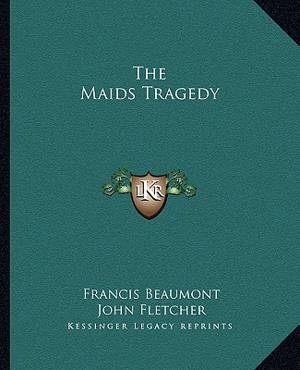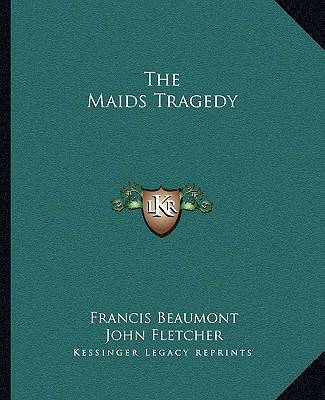
- Afhalen na 1 uur in een winkel met voorraad
- Gratis thuislevering in België vanaf € 30
- Ruim aanbod met 7 miljoen producten
- Afhalen na 1 uur in een winkel met voorraad
- Gratis thuislevering in België vanaf € 30
- Ruim aanbod met 7 miljoen producten
Zoeken
Omschrijving
""The Maids Tragedy"" is a play written by Francis Beaumont, a Jacobean playwright, and first published in 1619. The play follows the story of Amintor, a nobleman who is engaged to Evadne, a beautiful and virtuous woman. However, Amintor's best friend, Melantius, is also in love with Evadne and seeks to win her over. When Amintor discovers their affair, he is devastated and seeks revenge on both of them.The play is a tragedy that explores themes of love, betrayal, and revenge. It is set in the court of the King of Rhodes and features a cast of complex characters, including the cunning and manipulative Evadne, the passionate and conflicted Amintor, and the vengeful Melantius. The play is known for its powerful language and dramatic plot twists, which keep audiences engaged until the very end.Overall, ""The Maids Tragedy"" is a gripping and emotionally charged play that explores the darker aspects of human nature. It is a timeless classic that continues to be studied and performed by theater enthusiasts and scholars alike.Amint. I wonder much Melantius, To see those noble looks that make me think How vertuous thou art; and on the sudden 'Tis strange to me, thou shouldst have worth and honour, Or not be base, and false, and treacherous, And every ill.This scarce antiquarian book is a facsimile reprint of the old original and may contain some imperfections such as library marks and notations. Because we believe this work is culturally important, we have made it available as part of our commitment for protecting, preserving, and promoting the world's literature in affordable, high quality, modern editions, that are true to their original work.
Specificaties
Betrokkenen
- Auteur(s):
- Uitgeverij:
Inhoud
- Aantal bladzijden:
- 134
- Taal:
- Engels
Eigenschappen
- Productcode (EAN):
- 9781162701202
- Verschijningsdatum:
- 10/09/2010
- Uitvoering:
- Paperback
- Formaat:
- Trade paperback (VS)
- Afmetingen:
- 190 mm x 235 mm
- Gewicht:
- 244 g

Alleen bij Standaard Boekhandel
+ 62 punten op je klantenkaart van Standaard Boekhandel
Beoordelingen
We publiceren alleen reviews die voldoen aan de voorwaarden voor reviews. Bekijk onze voorwaarden voor reviews.








